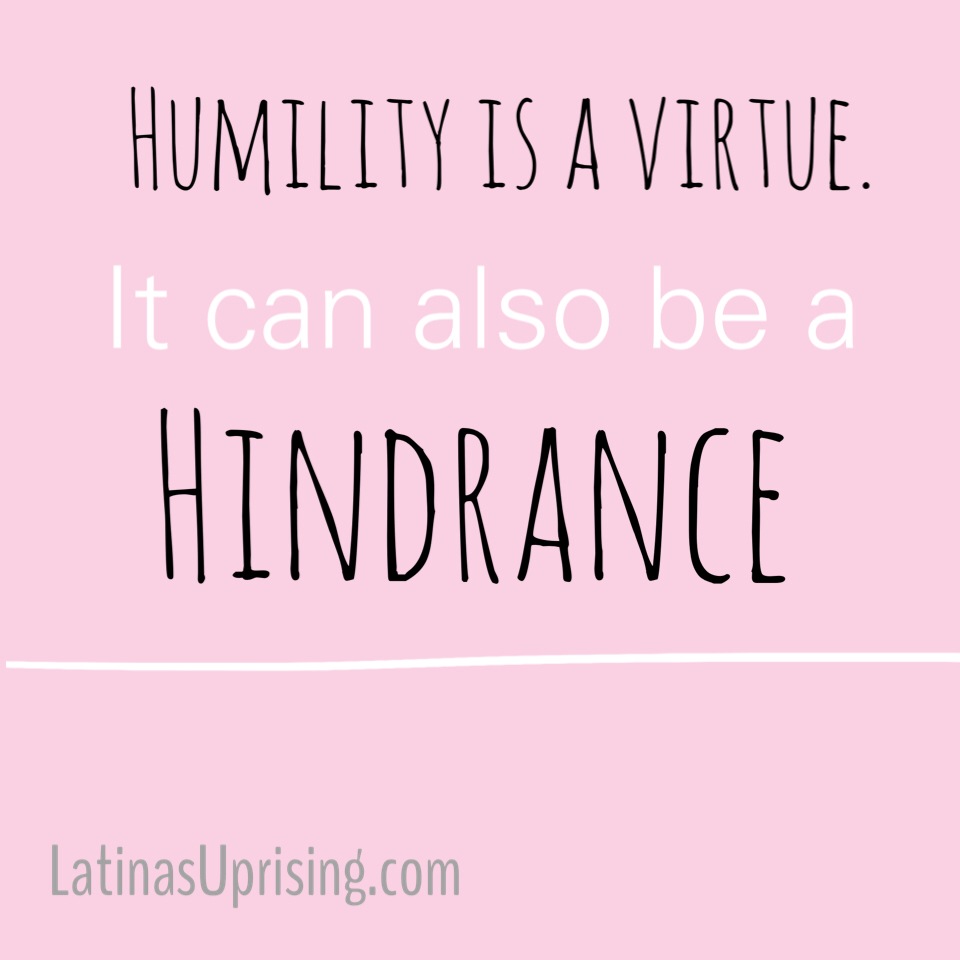Culture Conflict: Being Humble
Being humble is often held up as a positive attribute among Latino families. How many times have we heard our parents or family talk about being humilde? Humble is defined as not thinking of yourself as better than other people. It is someone who is not proud or haughty. This can be a great quality and one that is definitely venerated by most of our communities. However, there is a second part of that definition that blurs the line and makes me call into question as to whether this quality is a trait that will help you succeed in your legal career. For some, being humble also means someone who is easily submissive and one that accepts their limitations. And even the positive attributes: not thinking you’re better than someone, not being proud, etc. may not always work in your favor when it comes to advancing in your career.
First, it can be a problem when it comes to confidence. It is possible that this trait can affect your confidence because it naturally attempts to limit the confidence a woman is allowed to have in herself. If you can’t think you’re a better candidate, if you can’t push past limits, if you feel your better suited for a lesser role—how can this mindset possibly help you actually reach your career goals? Women already have a confidence problem. When we’re encouraged to be humble above other traits, it’s possible that it also works against our ability to boost and improve our self-esteem.
It can also be a problem when it comes to self-promotion. This harm can best be seen when it comes time to ask for raises, negotiate salaries, or just move on to higher positions at work or within our community. To obtain these things, we have to self-promote; we have to know our worth; and be comfortable discussing our successes. It’s difficult to do this when we’re taught to not think that we’re better than others or are taught that self-promotion is a bad way to be. This brief interview by Hispanic Executive shows just a glimpse of how this can be a problem for Latinos starting their career.
Finally, it can be a problem when it comes to the larger picture of our place in society. Who benefits the most when Latinas agree that we’re not better than anyone? That we accept the current limitations imposed on us? That we’re cool with receiving our dues only when everyone else has gotten theirs?
HINT: not Latinas.
It’s great to be self-aware and to not think others are lesser than you. But I think there’s a real risk in becoming complacent with the barriers imposed on us just because we’re striving for this supposed virtue. For me, the harm is best seen in the fact that we continue to be in the bottom of the payroll rung. Not because we think we deserve it, but because we’re fed a false idea that if we keep our head down and do a good job it will somehow all work out. Often that is not the case.Again, remember, Patron Saint of Latina Lawyers, Sonia Sotomayor already told us:
Sometimes, idealistic people are put off the whole business of networking as something tainted by flattery and the pursuit of selfish advantage. But virtue in obscurity is rewarded only in Heaven. To succeed in this world you have to be known to people.
I.e. it’s good to self-promote and seek out opportunities for yourself!
Now does this mean that I think we should just throw this revered quality out the window? No. It’s possible to strive for balance. Embody the good of being humble—giving credit when it’s due, taking others into consideration–really those are key team-player qualities, so add them to your tool-set. But more importantly, be aware of your limits (set by yourself or others) and then do what you can to push past them. This may mean that you push yourself past your comfort zone to promote yourself so that others are aware of your talents even if it feels unnatural. Hopefully, you slowly gain more confidence and the end result will be that you’re comfortable requesting what you deserve so that you can advance in your career.

